Table of Contents
MS Bahasa Indonesia – Ms. Dita
Middle school students are learning about Indonesian culture. They learned how to dance traditional dances from various regions in Indonesia, such as Saman dance from Aceh, plate dance (Tari Piring) from Minangkabau, Lenso dance from Maluku and Legong dance from Bali as well as several other dances. Students presented the dances in class, in front of their classmates and other students. In addition to dance, Indonesia is also rich in a variety of customs and rituals such as the funeral ceremony for Rambu Solo’ from Toraja, Ngaseuk Pare which is a traditional ceremony from Baduy when the harvest season arrives, and many other traditional ceremonies.
Students conducted research and presented the results of their research in front of the class. Students were asked multiple questions by their peers to create classroom discussions. These discussions were lively because of Indonesia’s diverse and unique cultures. Through these classroom research projects, students were able to identify various differences of the cultures in their respective countries and Indonesian cultures.
See more about Indonesian culture at Unesco: Intangible Cultural Heritage
MS Bahasa Indonesia – Ms. Pipit
In Semester 2, Grade 6 continues to learn Bahasa through reading many fable books. They are reading them to learn new intermediate/advanced words, to pronounce them correctly, to get familiar with sentence structures and to acquire basic grammar. They take a turn reading the fable aloud. From each page of the book, students are expected to write a one-sentence summary. This short summary must contain the selected words from the page discussed. By the end of this semester students will have expanded vocabulary so they will be ready to learn more challenging material in Grade 7.
Grade 7 learns to use intermediate/advanced words for making grammatically correct sentences and paragraphs. They learn parts of a sentence: subject, verbs, adjectives, adverbs, prepositions, etc. One of the ways to learn is by making crossword puzzles for the advanced words, quizzing each other, playing games and translating short paragraphs to help them remember. They were challenged to make interesting scripts for various skits that gave them opportunities to put their language knowledge into practice.
The theme for Grade 8 Bahasa class this semester is Health. Students learned an Indonesian song “Aku Anak Sehat” which translates to “I am a healthy kid.” They strengthen their listening skills by listening to audio recordings explaining about nutrients we need to be healthy. Then they practice their speaking skills by presenting information about vitamins such as the sources and the advantages. Not only that, reading texts about health is a challenging task as students find advanced vocabulary and complex sentence structure in them. Finally, they are challenged to write their own composition about healthy lifestyle.
High School English
World Literature Is Not Bored with Board Games
How in the world can you make the study of literature more fun? Why, make a game out of it, of course! That is exactly what students in grade 10 World Literature have set out to do for the culminating project to their Medieval Literature unit of study.
Working in small teams of three and four students, they have been assigned the challenging task of conceptualizing, designing, and creating a board game that is based on one of the selections of medieval literature that they studied in the unit. The stories from which each team made a selection varied widely, and included Arthurian Romances recounting tales of knightly chivalry, Norse Sagas about the Asgardian heroes and gods, and timeless epics with enduring themes and values such as The Song of Roland and The Divine Comedy by Dante Alighieri.
Each team of game designers has displayed an impressive level of engagement with this project from the planning stage to the completion of the project. By combining their knowledge of the chosen literature along with their experience of different types of board games and styles of play, teams were able to develop a game concept before moving forward.
Among the specific tasks each team needed to complete were coming up with an objective, or goal, for finishing the game, writing a set of rules for game play, designing an engaging and functional game board, and creating all the necessary pieces and accessories needed to play.
Once the games are finished, teams will give them a trial run with their classmates in order to receive constructive feedback on the game play–how fun and challenging it is–as well as how the team’s game met the specific objectives given in this task for including elements related to literature into their game design. Who knows, if the games are really good, maybe we’ll be seeing them on shelves of our favorite toy stores in the near future!
















